d-galacturonic acid
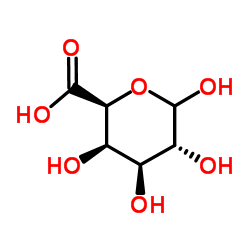
d-galacturonic acid structure
|
Common Name | d-galacturonic acid | ||
|---|---|---|---|---|
| CAS Number | 685-73-4 | Molecular Weight | 194.139 | |
| Density | 2.0±0.1 g/cm3 | Boiling Point | 495.2±45.0 °C at 760 mmHg | |
| Molecular Formula | C6H10O7 | Melting Point | 166°C | |
| MSDS | N/A | Flash Point | 211.1±22.2 °C | |
| Name | aldehydo-D-galacturonic acid |
|---|---|
| Synonym | More Synonyms |
| Density | 2.0±0.1 g/cm3 |
|---|---|
| Boiling Point | 495.2±45.0 °C at 760 mmHg |
| Melting Point | 166°C |
| Molecular Formula | C6H10O7 |
| Molecular Weight | 194.139 |
| Flash Point | 211.1±22.2 °C |
| Exact Mass | 194.042648 |
| PSA | 135.29000 |
| LogP | -2.88 |
| Vapour Pressure | 0.0±2.9 mmHg at 25°C |
| Index of Refraction | 1.685 |
| Storage condition | 2-8℃ |
Synonym:Non Section 2 - COMPOSITION, INFORMATION ON INGREDIENTS
Risk Phrases: None Listed. Section 3 - HAZARDS IDENTIFICATION EMERGENCY OVERVIEW
The toxicological properties of this material have not been fully investigated. Potential Health Effects Eye: May cause eye irritation. Skin: May cause skin irritation. Ingestion: May cause irritation of the digestive tract. The toxicological properties of this substance have not been fully investigated. Inhalation: May cause respiratory tract irritation. The toxicological properties of this substance have not been fully investigated. Chronic: No information found. Section 4 - FIRST AID MEASURES Eyes: Immediately flush eyes with plenty of water for at least 15 minutes, occasionally lifting the upper and lower eyelids. Get medical aid immediately. Skin: Flush skin with plenty of water for at least 15 minutes while removing contaminated clothing and shoes. Get medical aid if irritation develops or persists. Ingestion: If victim is conscious and alert, give 2-4 cupfuls of milk or water. Get medical aid immediately. Inhalation: Remove from exposure and move to fresh air immediately. If not breathing, give artificial respiration. If breathing is difficult, give oxygen. Get medical aid. Notes to Physician: Section 5 - FIRE FIGHTING MEASURES General Information: As in any fire, wear a self-contained breathing apparatus in pressure-demand, MSHA/NIOSH (approved or equivalent), and full protective gear. During a fire, irritating and highly toxic gases may be generated by thermal decomposition or combustion. Extinguishing Media: In case of fire, use water, dry chemical, chemical foam, or alcohol-resistant foam. Section 6 - ACCIDENTAL RELEASE MEASURES General Information: Use proper personal protective equipment as indicated in Section 8. Spills/Leaks: Clean up spills immediately, observing precautions in the Protective Equipment section. Sweep up, then place into a suitable container for disposal. Section 7 - HANDLING and STORAGE Handling: Wash thoroughly after handling. Remove contaminated clothing and wash before reuse. Use with adequate ventilation. Avoid contact with eyes, skin, and clothing. Avoid ingestion and inhalation. Storage: Store in a cool, dry place. Keep container closed when not in use. Section 8 - EXPOSURE CONTROLS, PERSONAL PROTECTION Engineering Controls: Use process enclosure, local exhaust ventilation, or other engineering controls to control airborne levels. Exposure Limits CAS# 685-73-4: Personal Protective Equipment Eyes: Wear appropriate protective eyeglasses or chemical safety goggles as described by OSHA's eye and face protection regulations in 29 CFR 1910.133 or European Standard EN166. Skin: Wear appropriate protective gloves and clothing to prevent skin exposure. Clothing: Wear appropriate protective clothing to minimize contact with skin. Respirators: Follow the OSHA respirator regulations found in 29 CFR 1910.134 or European Standard EN 149. Use a NIOSH/MSHA or European Standard EN 149 approved respirator if exposure limits are exceeded or if irritation or other symptoms are experienced. Section 9 - PHYSICAL AND CHEMICAL PROPERTIES Physical State: Solid Color: white Odor: None reported. pH: Not available. Vapor Pressure: Not available. Viscosity: Not available. Boiling Point: Not available. Freezing/Melting Point: 164.00 - 165.00 deg C Autoignition Temperature: Not available. Flash Point: Not available. Explosion Limits, lower: Not available. Explosion Limits, upper: Not available. Decomposition Temperature: Solubility in water: soluble Specific Gravity/Density: Molecular Formula: C6H10O7.H2O Molecular Weight: 212.16 Section 10 - STABILITY AND REACTIVITY Chemical Stability: Stable under normal temperatures and pressures. Conditions to Avoid: None reported. Incompatibilities with Other Materials: Oxidizing agents. Hazardous Decomposition Products: Carbon monoxide, irritating and toxic fumes and gases, carbon dioxide. Hazardous Polymerization: Has not been reported. Section 11 - TOXICOLOGICAL INFORMATION RTECS#: CAS# 685-73-4 unlisted. LD50/LC50: Not available. Carcinogenicity: D-(+)-Galacturonic acid monohydrate - Not listed by ACGIH, IARC, or NTP. Section 12 - ECOLOGICAL INFORMATION Section 13 - DISPOSAL CONSIDERATIONS Dispose of in a manner consistent with federal, state, and local regulations. Section 14 - TRANSPORT INFORMATION IATA Not regulated as a hazardous material. IMO Not regulated as a hazardous material. RID/ADR Not regulated as a hazardous material. Section 15 - REGULATORY INFORMATION European/International Regulations European Labeling in Accordance with EC Directives Hazard Symbols: Not available. Risk Phrases: Safety Phrases: S 24/25 Avoid contact with skin and eyes. WGK (Water Danger/Protection) CAS# 685-73-4: No information available. Canada CAS# 685-73-4 is listed on Canada's NDSL List. CAS# 685-73-4 is not listed on Canada's Ingredient Disclosure List. US FEDERAL TSCA CAS# 685-73-4 is listed on the TSCA inventory. SECTION 16 - ADDITIONAL INFORMATION N/A |
| WGK Germany | 3 |
|---|---|
| HS Code | 2918990090 |
|
~% 
d-galacturonic acid CAS#:685-73-4 |
| Literature: Carbohydrate research, , vol. 103, # 1 p. 107 - 128 |
|
~% 
d-galacturonic acid CAS#:685-73-4 |
| Literature: Carbohydrate research, , vol. 103, # 1 p. 107 - 128 |
|
~% 
d-galacturonic acid CAS#:685-73-4 |
| Literature: Journal of Biological Chemistry, , vol. 234, p. 2227,2231 |
| Precursor 3 | |
|---|---|
| DownStream 9 | |
| HS Code | 2918990090 |
|---|---|
| Summary | 2918990090. other carboxylic acids with additional oxygen function and their anhydrides, halides, peroxides and peroxyacids; their halogenated, sulphonated, nitrated or nitrosated derivatives. VAT:17.0%. Tax rebate rate:13.0%. . MFN tariff:6.5%. General tariff:30.0% |
| GALACTURONATE |
| galactouronic acid |
| D-GALACTURONATE |
| galaturonate |
| D-Galactopyranuronic acid |
| Galactopyranuronic acid, D- |
| GALACTURONIC ACID,D |
| A-D-GALACTURONIC ACID |
| D-galaturonate |
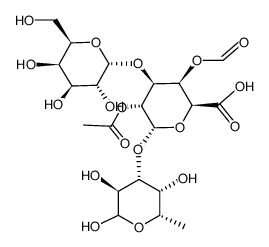
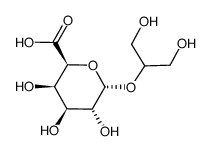
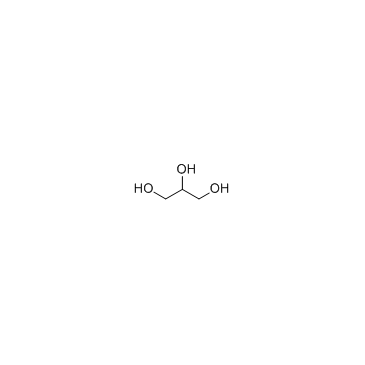
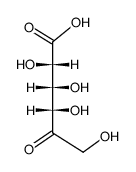

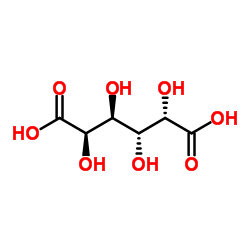 CAS#:526-99-8
CAS#:526-99-8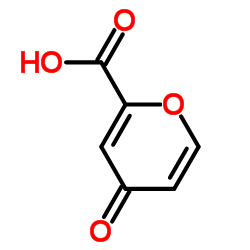 CAS#:499-05-8
CAS#:499-05-8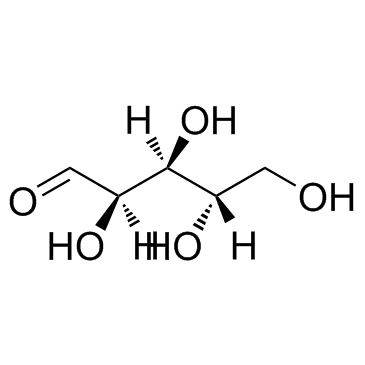 CAS#:5328-37-0
CAS#:5328-37-0 CAS#:25253-46-7
CAS#:25253-46-7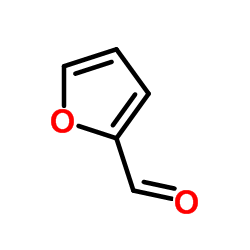 CAS#:98-01-1
CAS#:98-01-1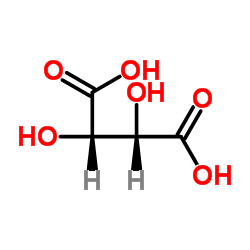 CAS#:147-71-7
CAS#:147-71-7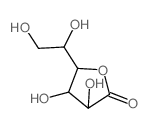 CAS#:1668-08-2
CAS#:1668-08-2![[6-(diacetyloxymethyl)-2-oxopyran-3-yl] acetate structure](https://image.chemsrc.com/caspic/285/76539-65-6.png) CAS#:76539-65-6
CAS#:76539-65-6 CAS#:80-72-8
CAS#:80-72-8